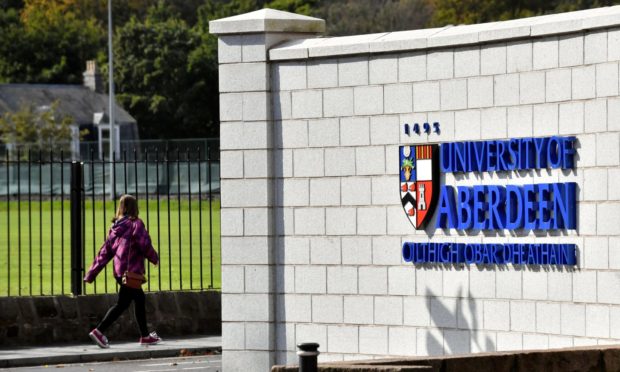Hundreds have urged Aberdeen University to reconsider a decision not to adopt a proposed “safety net” policy in order to assist students negatively impacted by the pandemic.
The university’s senate – responsible for academic matters relating to teaching and research – recently decided against a no detriment policy, which is designed to protect academics that have had their studies impeded by Covid.
Under such a policy, more flexibility would be provided when calculating final grades, giving markers the ability to take the effects of the virus on the academic’s work into account.
The Aberdeen University Student’s Association (Ausa) has established a petition online appealing for the university to think again and implement it, and by Sunday evening had attracted in excess of 1,500 signatures.
In a statement, the association said: “The aim of the policy was to protect students from negative impacts of the pandemic.
“This has still not been achieved.
“Students have been severely impacted in terms of mental health and workload and need to have a safety net policy to ensure they do achieve their best during these very challenging times.
“The lack of no detriment policy will result in very negative impact on their degree, and in turn on their opportunities post-university.
“The current policies in place are not sufficient to mitigate this impact on students, and current practices often take too long, or are too diverse to be consistent.”
Students at Aberdeen University, and at academic institutions across the country, have had to deal with all manner of disruption to their studies caused by the virus, including outbreaks in halls of residence and studying remotely instead of in-person.
A spokesman for the university said: “Throughout the pandemic the university has placed great emphasis on caring for the well-being of our students, and we continue to do so.
“While senate did not support the specific no detriment policy that was proposed for our second half session, it did endorse the need for consistency and fairness for students who have been adversely affected by the pandemic.
“We have in place a range of processes to enable students to inform us of their circumstances, for example if they require an extension or are suffering ill-health or other mitigating circumstances.
“This might include inadequate access to IT, poor working conditions at home or elsewhere, family issues, or any other factors.
“The university’s existing procedures on assessment and degree award enable and support achievement and will be used to ensure that students’ performance during this time is supported.
“We are working with Ausa to take forward this work so no student is disadvantaged.”
